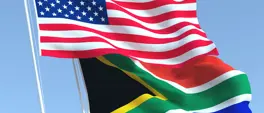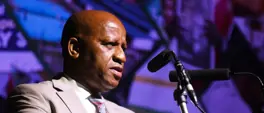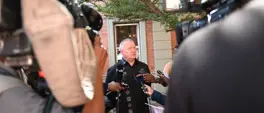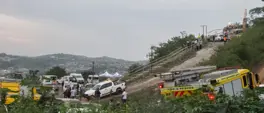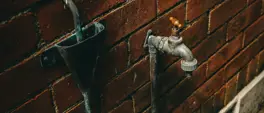WATCH: Baffled by the 3 ballots? We've got you covered!
Sara-Jayne Makwala King
15 May 2024 | 11:01There are two weeks to go until South Africa holds its seventh democratic elections and voters will for the first time receive three ballot papers instead of two.
Africa Melane speaks to Tessa Dooms of Rivonia Circle and Wayne Sussman, an elections analyst.
Click below to listen to the full interview.
On 29 May, for the first time, South African voters will receive three ballot papers at the polling station instead of two.
Registered voters will receive three separate ballot papers to elect candidates to represent them in the National Assembly and Provincial Legislatures.
South Africans can therefore split their vote - they may choose X party at the national level and Y party at the provincial level.
Rivonia Circle's Tessa Dooms says there are many reasons why people may choose to split their vote.
"Sometimes it's because the quality of the people in the different spaces. Sometimes people are trying to defuse power... they have parties they prefer at provincial level."
- Tessa Dooms, Director - Rivonia Circle
"People who are disgruntled with the ANC for example may still see this as an opportunity to give the ANC one of their votes, but give another party the chance to hold the ANC accountable or 'punish' the ANC."
Tessa Dooms, Director - Rivonia Circle
So, how does it work?
"We will be voting twice for the National Assembly - once on a national ballot that will only have parties and then once on a mixed ballot of parties and independents."
- Tessa Dooms, Director - Rivonia Circle
So, to summarise, the three ballot papers are for...
The National Ballot - consisting of 52 political parties vying for 200 seats in the National Assembly.
The Regional or Province-to-National Ballot which voters will use to elect a political party or an independent candidate to represent them in the National Assembly.
And, finally, the Provincial Ballot is unique to each province and includes parties and independent candidates competing for seats in each respective provincial legislature.
Still confused? Check Tessa Doom's explanation in the video below:
Watch @tessa_dooms explain the #SAElections24's three ballots and how it all works. #SAElections24 #WetheVoters #PowertoAct pic.twitter.com/1CHZzNuMOl
— Rivonia Circle (@rivonia_circle) May 8, 2024
Scroll up to listen to the full interview.
ALSO READ: Confused by the 3 ballot papers? We've got you covered
Get the whole picture 💡
Take a look at the topic timeline for all related articles.
Trending News
More in Local
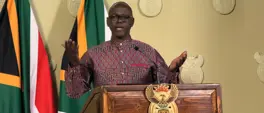
15 December 2025 09:26
Presidency defends decision not to release Madlanga Commission interim report

15 December 2025 09:24
Man arrested in connection with murder of Tembisa school principal

15 December 2025 09:07
Move to close City Varsity, Damelin, ICESA ‘in interest of protecting students, upholding integrity of higher education’
